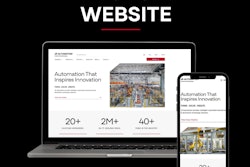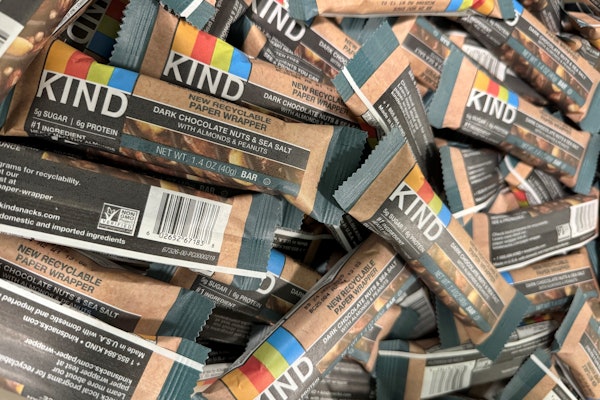The integration of artificial intelligence (AI) in packaging manufacturing has become a necessity. AI is revolutionizing traditional processes, driving efficiency, and creating new opportunities for innovation. Let’s examine how AI technology is transforming both business operations and manufacturing for packagers.
Everyday business functions
AI’s impact on business operations is profound, offering tools that can streamline daily functions, enhance decision-making and optimize resource allocation. Packaging companies of all sizes are increasingly relying on AI to improve efficiency and drive growth in four areas:
- Predictive analytics for demand forecasting. One of the most common uses of AI in business is predictive analytics. Packaging manufacturers are leveraging AI-powered algorithms to forecast demand for specific products. By analyzing historical sales data, customer behavior patterns, and even external factors such as market trends or economic conditions, AI can accurately predict future demand. Manufacturers can optimize production schedules, reduce waste, and ensure adequate packaging materials are available when needed.
- Consumer relationship management and personalization. AI enhances customer relationship management by providing actionable insights into consumer behavior. Advanced CRM systems powered by AI can analyze data from multiple channels—such as social media, email, and sales reports—to help tailor marketing strategies, improve customer engagement and predict future buying patterns. The result is a more personalized experience for consumers, which can lead to increased sales and stronger customer loyalty.
- Supply chain optimization. AI can optimize supply chain management by tracking inventory levels in real time, predicting supply chain disruptions and recommending the most efficient delivery routes. This leads to cost savings, faster delivery times, and a more sustainable approach to packaging production by minimizing wasted resources. AI tools can also enhance supplier relationships by automating communication and ensuring timely placement of orders based on predictive insights.
- Automation of administrative tasks. In addition to improving operations, AI can automate routine administrative tasks, allowing packaging manufacturers to focus on higher-value activities. For instance, AI-powered tools can automate data entry, manage payroll, and even provide human resource functions like employee scheduling and performance tracking. This automation reduces the risk of errors and frees up human resources for more strategic initiatives, increasing productivity.
Impact on packaging manufacturing
Though AI is transforming everyday business functions, its impact on packaging manufacturing is even more evident. AI is enabling manufacturers to push the boundaries of what is possible, from material innovation to sustainability efforts and beyond. Here are six areas where that is occurring:
- Smart packaging design. AI is driving the development of smart packaging that goes beyond aesthetics. Through advanced algorithms, AI can create packaging designs optimized for material usage, strength, and recyclability. Designers can input specific criteria—such as the desired level of protection, weight limits, or sustainability goals—and AI can generate design options that balance these factors. This reduces the time spent on trial-and-error methods.
- Quality control and defect detection. AI can play a significant role in packaging manufacturing quality control. It can scan packaging products at various stages of the manufacturing process and detect defects at a micro-level that would be invisible to the human eye, whereas traditional quality checks are labor-intensive and can miss subtle defects. Machine learning algorithms analyze thousands of samples and learn to recognize patterns associated with defects, significantly improving the accuracy and speed of quality control checks.
- Customization at scale. With consumer demand increasing for personalized products, AI is enabling packaging manufacturers to offer mass customization. AI algorithms can quickly adjust designs, dimensions, or graphics for individual packaging products based on customer preferences or specific product requirements. This flexibility allows businesses to offer previously impossible bespoke packaging solutions at scale.
- Predictive maintenance of equipment. Unplanned manufacturing downtime due to equipment failure can be costly. AI-based predictive maintenance systems use sensors and real-time data to monitor the health of manufacturing equipment. These systems can predict when a machine is likely to fail and recommend maintenance actions.
- Sustainability and waste reduction. AI can drive sustainability initiatives within packaging manufacturing. By analyzing the environmental impact of different materials and manufacturing processes, AI can recommend more sustainable alternatives.
- Robotics and AI for smart factories. AI-powered robotics are gaining traction. In smart factories, AI-controlled robots can handle tasks such as sorting, assembling, and packaging products with incredible precision.
As AI technology evolves, its applications in packaging manufacturing will expand and manufacturers a competitive edge. For packaging companies, the time to embrace AI is now.
The author, Tom Seymour, is the former Chair of the IoPP Board of Directors and a Business Development Leader at Bison Bag. He is an IoPP Certified Packaging Professional. For more information on IoPP, visit www.iopp.org.

























